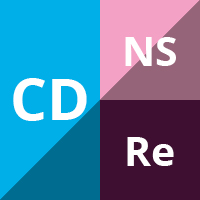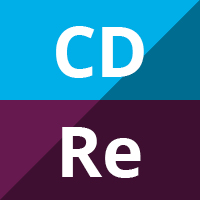
Excitatory amino acid antagonists for acute stroke
Abstract Background Focal cerebral ischaemia causes release of excitatory amino acid (EAA) neurotransmitters, principally glutamate, with resultant over-stimulation of EAA receptors and downstream pathways. Excess glutamate release is a pivotal event in the evolution of irreversible ischaemic damage in animal models of ischaemia, and drugs that modulate glutamate action either by inhibiting its release, or […]

Antiplatelet therapy for preventing stroke and other vascular events after carotid endarterectomy
Abstract Background Antiplatelet drugs are effective and safe in a wide variety of patients at high risk of vascular ischaemic events. Among patients undergoing vascular surgical procedures, these agents significantly reduce the risk of graft or native vessel occlusion. In this context we wished to examine their effects in patients after carotid endarterectomy (CEA). Objectives […]

Therapy-based rehabilitation services for stroke patients at home
Abstract Background Stroke Unit care is now accepted as an effective service model for hospital care, but the effectiveness of outpatient care is less certain. This review focuses on therapy-based rehabilitation services targeted at stroke patients living at home. Objectives To assess the effects of therapy-based rehabilitation services targeted towards stroke patients resident in the […]

Chelation therapy for atherosclerotic cardiovascular disease
Abstract Background Chelation therapy is being promoted and practiced all over the world as a form of alternative medicine in the treatment of atherosclerotic cardiovascular disease. It has been recommended as a safe, relatively inexpensive and non-surgical method of restoring blood flow in atherosclerotic vessels. At present the benefit of chelation therapy remains controversial at […]

Fibrinolytic therapy for intraventricular hemorrhage in adults
Abstract Background Spontaneous or secondary intraventricular hemorrhage is a marker of poor prognosis for hemorrhagic stroke. It can cause hydrocephalus and require ventricular shunt placement, result in permanent neurological deficits or death. Fibrinolytic agents injected into the ventricular system could dissolve blood clots, increase the clearance of blood from the ventricles and hence improve outcome. […]

Anticoagulants versus antiplatelet agents for acute ischaemic stroke
Abstract Background Antiplatelet agents produce a small, but worthwhile benefit in long-term functional outcome and survival, and have become standard treatment for acute ischaemic stroke. Anticoagulants are often used as an alternative treatment, despite evidence that they are ineffective in producing long-term benefits. We wanted to review trials which have directly compared anticoagulants and antiplatelet […]

Lubeluzole for acute ischaemic stroke
Abstract Background Experimental studies have shown that ischaemic insults cause excess release of excitatory amino acid (EAA) neurotransmitters, particularly glutamate. Glutamate re-uptake is impaired under ischaemic conditions. In preclinical models of stroke, antagonists of excitatory amino acids or of glutamate release protect against ischaemic injury, even when administered after the ischaemic insult. Lubeluzole is a […]

Gangliosides for acute ischaemic stroke
Abstract Background Gangliosides may have a protective effect on the central and peripheral nervous systems. Objectives To assess the effect of exogenous gangliosides in acute ischaemic stroke. Search methods We searched the Cochrane Stroke Group trials register (last searched: May 2001) and contacted drug companies and main investigators of included trials. Selection criteria Randomised trials […]

Tirilazad for acute ischaemic stroke
Abstract Background Tirilazad mesylate is neuroprotective in experimental models of ischaemic stroke suggesting it might be of benefit clinically. Objectives To assess whether tirilazad mesylate is safe and effective at improving outcome in patients with acute ischaemic stroke. Search methods Trials of tirilazad were identified from searches of the Cochrane Stroke Group Trials Register (last […]

Pharmacological treatment for aphasia following stroke
Abstract Background Aphasia describes language impairment associated with a brain lesion. Objectives To assess the effects of drugs on language abilities when given to people with aphasia following stroke. Search methods We searched the Cochrane Stroke Group Trials Register (last searched: May 2001), and reference lists of relevant articles to December 1998. We also contacted […]

